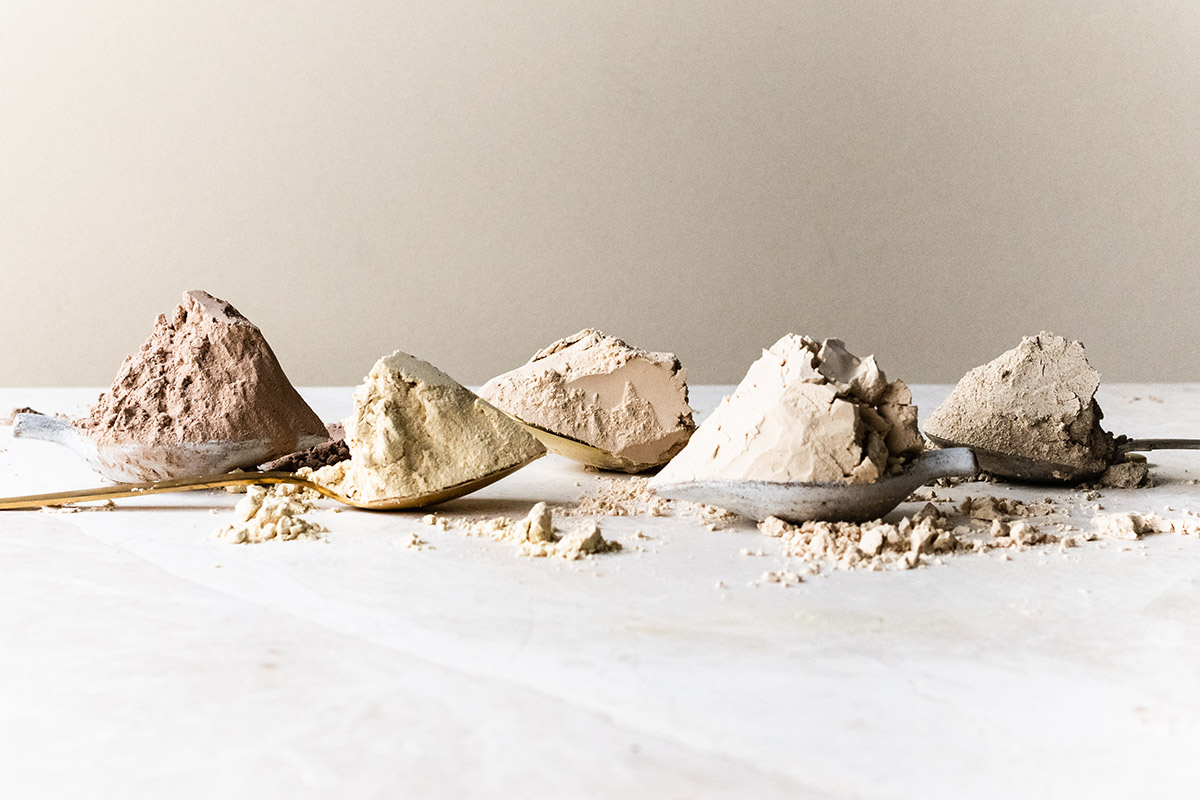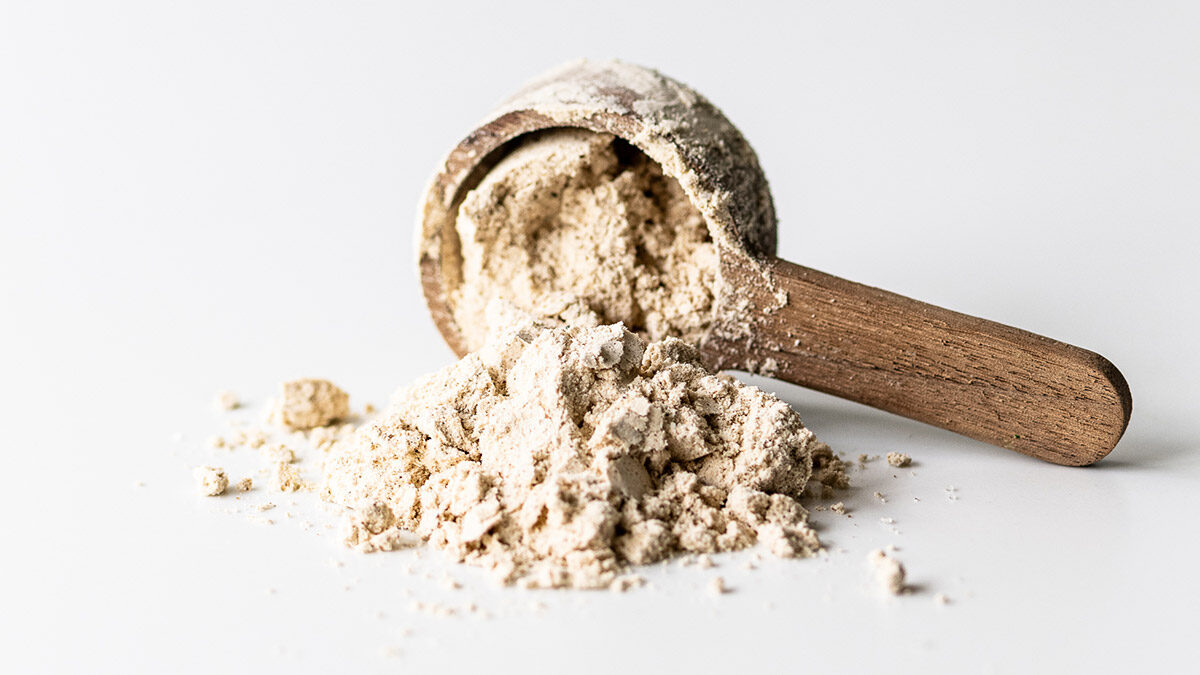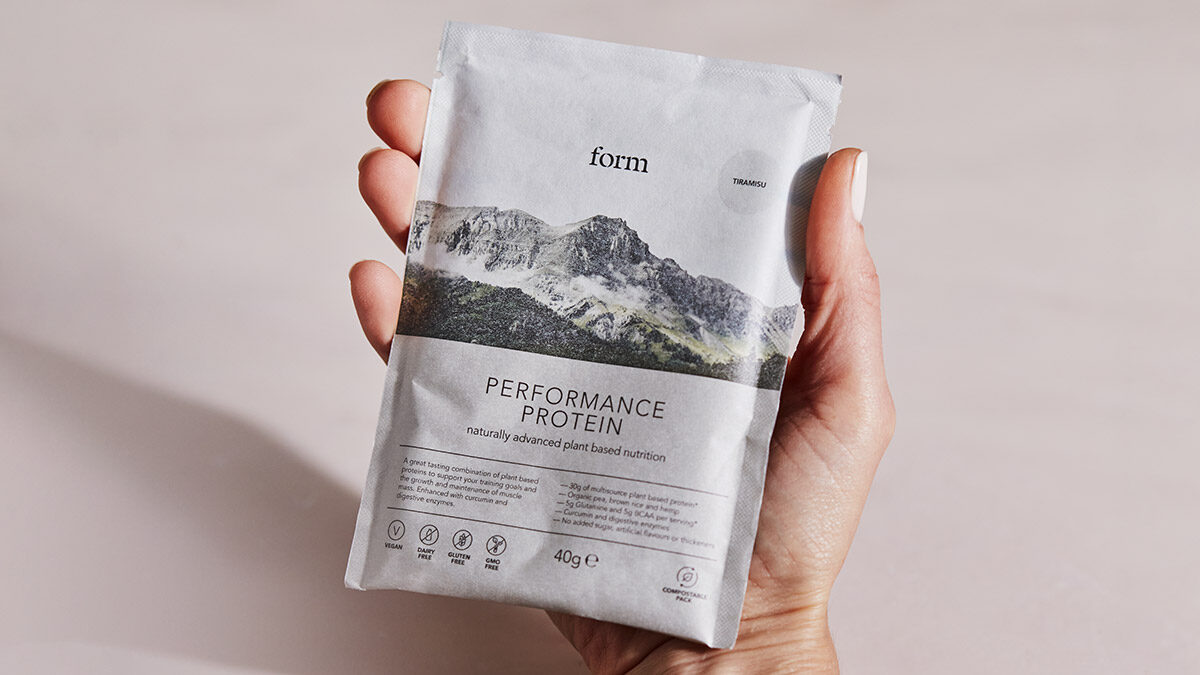What’s the Difference Between Plant-Based and Whey Protein?

For years, diet culture has duped us into thinking that to be fit and healthy, we need to work out more and consume fewer calories.
But this overlooks some major factors – including the fact that your body needs enough quality protein to maintain the muscle we already have, and to keep building muscle that will make us stronger, leaner and more powerful.
You probably know by now that eating protein holds a large chunk of the key to a stronger you. Still, many of us are unsure of how to choose between the two popular types: whey and plant-based protein. Let’s explore what makes them different and how to choose wisely.
Why is protein important?
Think of protein like the building blocks of your body. It’s composed of amino acids that help muscles, tissues, and even your hair and nails grow strong and healthy.
This is particularly important when it comes to fitness. When our muscle fibres become damaged during exercise, they need protein to rebuild and repair. Like carbohydrates and fat, protein is a macronutrient, which means you need relatively large amounts of it in your diet to stay healthy.
When it comes to protein, there are two different types: complete and incomplete. Complete proteins contain all nine essential amino acids, whereas incomplete proteins are missing one or more.
Animal proteins including meat, poultry, fish, eggs and dairy are good sources of complete protein, but there are also a few plant-based options too, including: quinoa, buckwheat and hemp seed.
Aside from gym gains, some proteins also play a critical role in your immune system. They help identify and fight off harmful invaders like viruses and bacteria, keeping you healthy and protected. Hormones, which act as messengers, are also made up of proteins too. They regulate things like growth, mood, and even your stress response.

How much protein should the average gym goer get?
It really depends on what your goals are. The NHS recommend that the average woman consumes 45g, or 55g for men. That’s about two portions of meat, fish, nuts or tofu per day. However, if you’re aiming to build muscle, you’ll need to provide your body with an appropriate amount of calories and nutrients, particularly protein, to support muscle growth.
A recent study called Essentials of Strength Training and Conditioning found that aerobic endurance athletes require approximately 1.0 to 1.6 grams of protein per kg of body weight to hit the sweet spot of peak performance. On the other hand, strength athletes have a requirement of roughly 1.4 to 1.7 grams per kilogram of body weight. Because of the menstrual cycle, there’s also relatively new research to suggest that women may also require more protein at different times of the month, to help support their hormones.
What’s the difference between vegan and whey protein?
Whey protein is a byproduct of cheese production, extracted from milk. It has a complete amino acid profile, containing all the essential amino acids that your body needs for various functions, including muscle growth and repair.
There are a couple of main kinds of whey protein powder to know. The first is called whey protein concentrate (WPC), which is often the cheaper option. Then there’s whey protein isolate (WPI), which costs a bit more, but is purer and easier to digest for some people.
Vegan protein, meanwhile, derives from plant sources, making it an appealing choice for people embracing a plant-based lifestyle. Plant-based protein sources include peas, rice, soy and hemp. While some plant proteins may lack specific amino acids, combining different plant sources creates a complete protein profile.

What are the benefits?
Whey protein’s advantage lies in its swift absorption post-exercise, providing essential nutrients for muscle repair. Studies have found that its amino acid richness, including branched-chain amino acids (BCAAs), supports muscle growth and protein synthesis.
But let’s clear up some confusion – plant-based proteins have made big improvements in recent years, and it’s a misconception that whey types always have more protein in each serving. Take Form’s Performance Protein, for example. It combines organic pea protein with brown rice and pumpkin seed to give you a solid 30g of protein in a serving. For comparison, many well-known whey protein products have around 21g per serving. And here’s the added benefit: our plant-based protein has all the different amino acids you need, including 5g of those vital BCAAs, so you won’t be missing out on anything important.
Plant-based proteins are also often thought to have less bad fats and cholesterol. A systematic review published in the Journal of the American Heart Association, based on 112 trials, found that when people switched from animal protein to plant protein, their bad cholesterol (LDL), not-so-good cholesterol (non-HDL), and a certain artery-related protein (Apo-B) dropped by around 4%. This was true for both people with and without high cholesterol.
Vegan varieties of protein powder usually come with added vitamins, minerals, and antioxidants from plants, which makes them really good for getting a balanced mix of nutrients. Lots of people also find them easier on their stomachs too, especially if they have issues like a sensitive stomach or IBS.
But perhaps the most important thing to know about plant-based protein is how much better it is for the planet. Producing it generally requires less land, water, and other resources compared to animal farming, which is involved in the production of whey protein. So if you care about supporting the planet, opting for plant-based protein can line up with your values.

Vegan or whey: which should I choose?
The choice between vegan and whey protein depends on your personal preferences, dietary needs, and personal values.
A review of several studies that compared plant-based and whey protein effects on exercise brought out some interesting discoveries.
Whey protein was found to boost muscle protein growth, leading to bigger muscles after 36 weeks. On the other hand, plant-based protein lowered oxidative stress. Specifically, the research indicated that plant protein elevated antioxidant levels in comparison to whey protein.
But, the study also found that whey protein also raises lipid peroxide levels, which can harm cells over time due to free radicals. Another review supports the idea that plant protein usually brings better results for metabolic health compared to animal protein.
It’s important to dig deeper into studies, many of them comparing whey to a single source plant protein such as soy. As we’ve discussed a full amino acid profile is important and possible with plant proteins by combining many plant sources, such as the pea, rice and pumpkin seed in Form’s proteins. When studies look at such a multi-source plant protein vs whey the differences in terms of muscle growth are statistically insignificant.
Remember, protein powder is quick and easy, and perfect when you’re on the move. But don’t forget about whole foods like veggies, beans and nuts – they pack in more of the additional nutrients that’s good for your health. A balanced diet with lots of different foods is the way to make sure you’re getting all the important nutrients. If you’re not sure about what you need, it’s always a good idea to talk to a health expert.


















